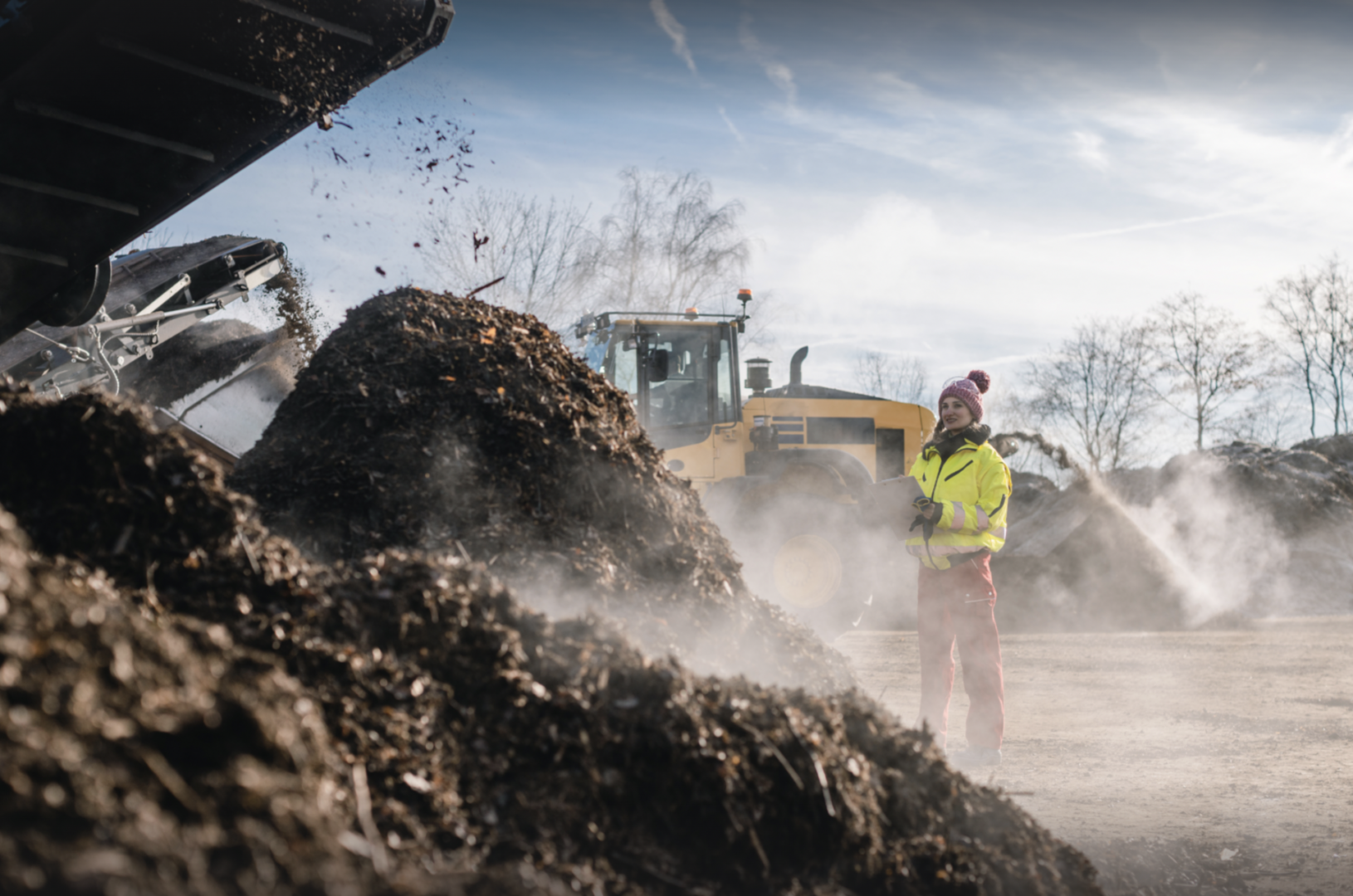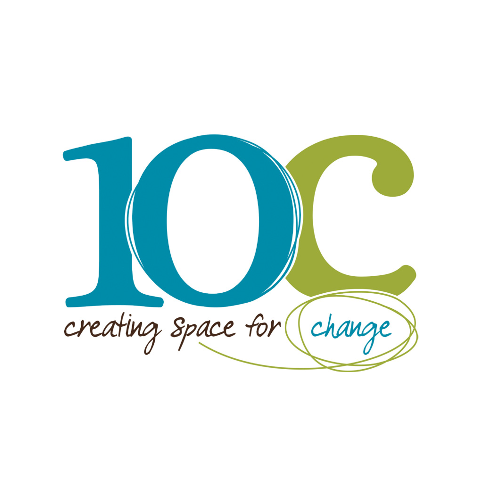Accelerating the SDGs: Finding a solution for industrial, commercial and institutional food waste
Guelph-Wellington’s Commercial Food Waste Diversion Collective addresses many UN Sustainable Development Goals by diverting edible and unavoidable food waste from landfill.
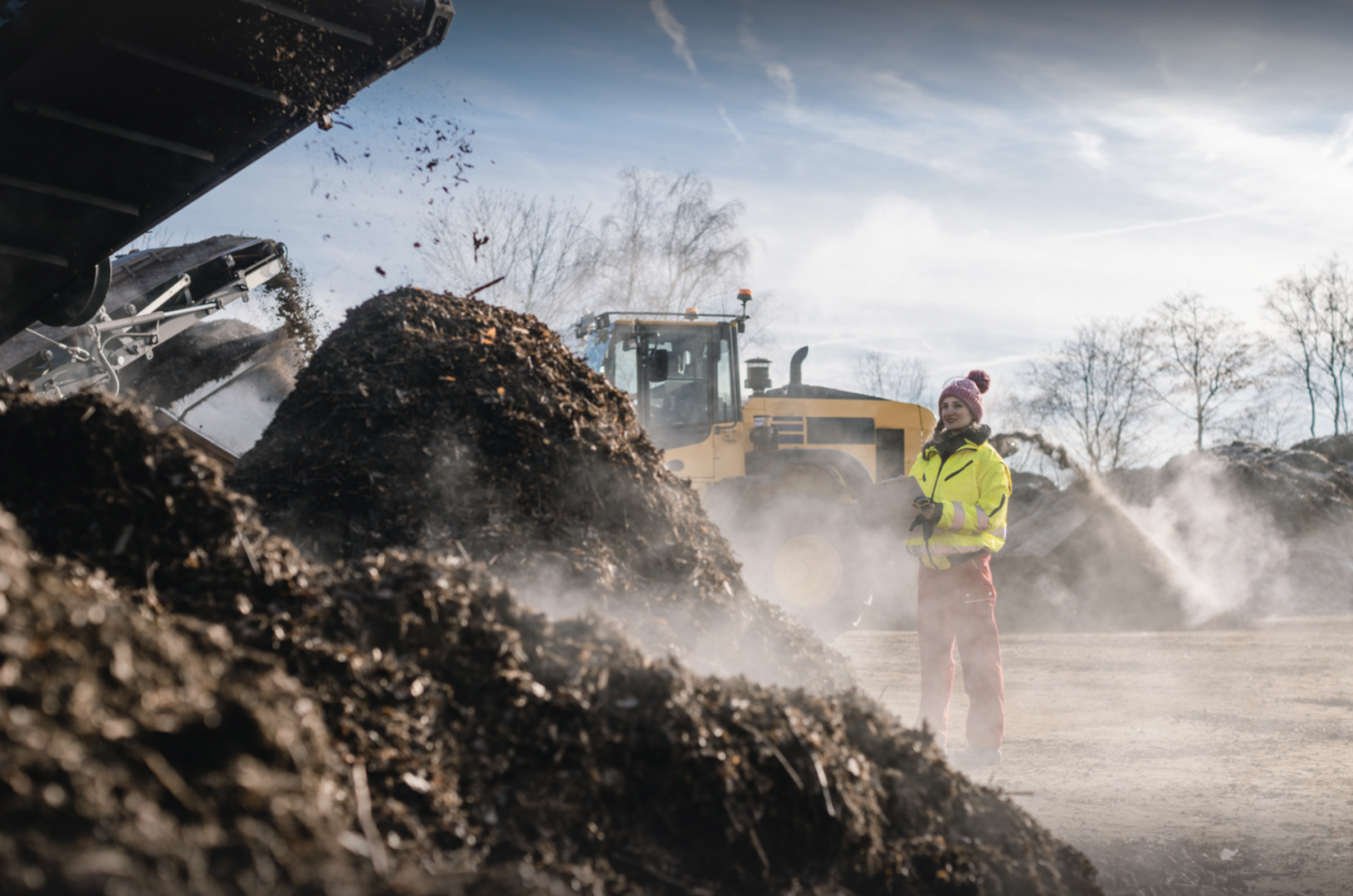
Today, approximately 50 percent of all food in Canada is wasted—with the industrial, commercial and institutional (IC&I) sector responsible for sending approximately 22 million tonnes of food to landfill each year. Not only is this happening at a time when one in seven Canadians suffers from food insecurity—but food waste is a contributing factor to the climate crisis, causing approximately 8% of global greenhouse gas emissions.
In 2021, the Guelph-Wellington Commercial Food Waste Diversion Collective started as a part of the larger project, Our Food Future. The goal of Our Food Future was to turn Guelph-Wellington into Canada’s first circular food economy by making healthy food more accessible, fostering circular food businesses, and maximizing economic value from waste. As part of this initiative, CIC’s Commercial Food Waste Diversion Collective is currently being used to test a holistic IC&I food waste diversion program that could tick all three boxes.
Pulling from the knowledge and experiences gleaned from a similar project that ran in Durham Region in 2018, Circular Innovation Council helped design the Guelph-Wellington program with two primary goals in mind: To facilitate an affordable commercial organic waste collection program for local businesses, and donate edible surplus food from businesses to local food rescue charities to support community members experiencing food insecurity.
By streamlining the process of food waste diversion, the Collective makes it easy for a wide array of establishments including grocery stores, hospitals, hotels, and restaurants to keep food waste out of local landfill.
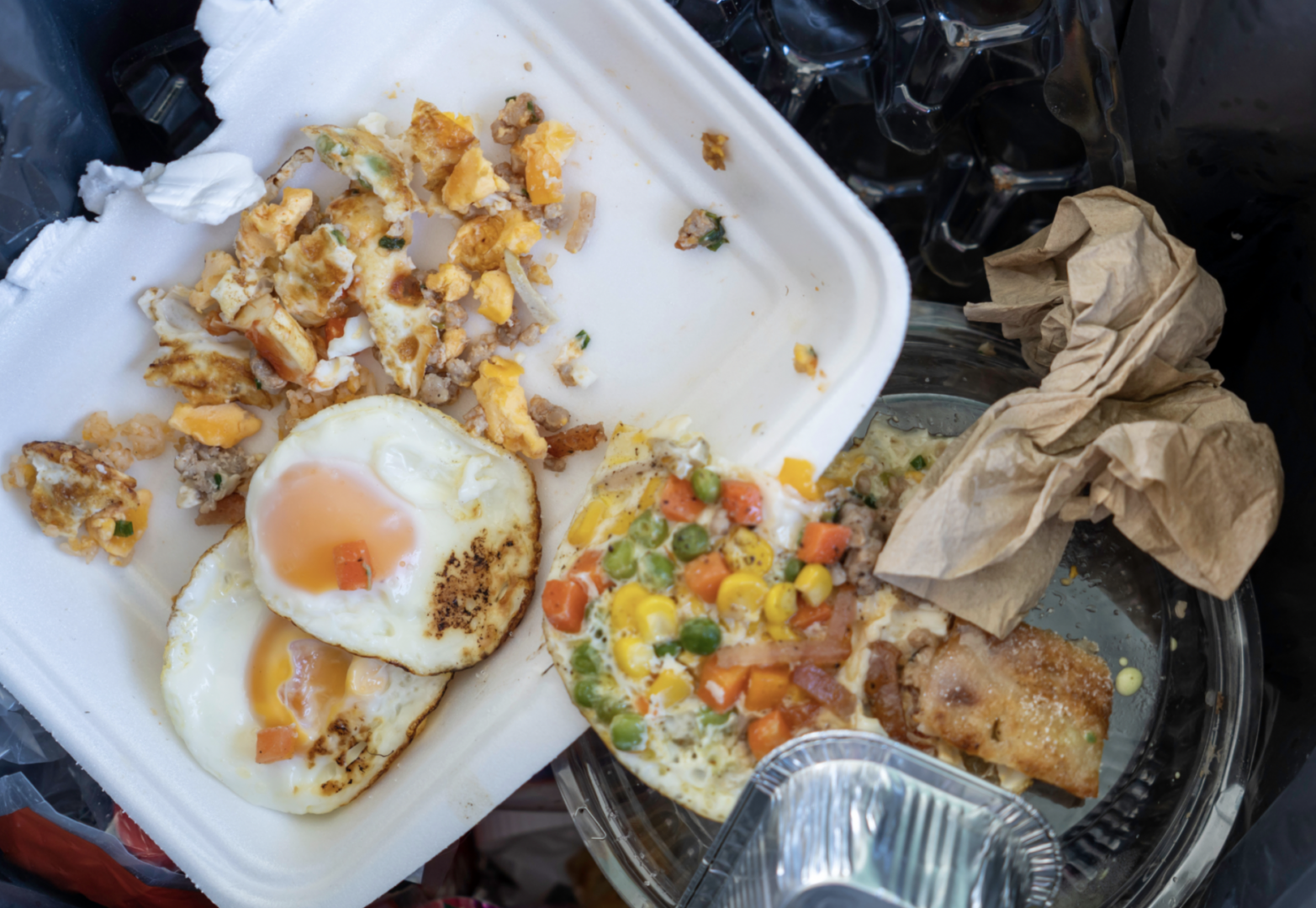
The Food Waste Challenge in the IC&I Sector
Katherine Sowden passionately believes that at the core of every healthy community is a healthy food system. As the proud owner and operator of Bella Roma Foods—a small Guelph, Ontario business committed to providing high-quality food products—she leverages her unique position and culinary background to educate others on the role of the food system, as well as our individual responsibilities within it.
That said, for a long time, it wasn’t always easy to practice what she preached.
Rescuing edible food to feed those in need, and composting unavoidable food waste, are integral components of a well-functioning food system—responsibilities Katherine found difficult, and expensive, to fulfill at a business level.
Finding an efficient way to get edible food from her business to food rescue charities involved a lot of moving parts that were often challenging—and time consuming—to manage. At the same time, like other Canadian communities, Guelph only offered door-to-door organics pickup for residents—not those in the IC&I sector. This meant Katherine had to hire a private hauler to responsibly dispose of her business’s food waste.
Due to the low density of IC&I organics collection programs, private haulers tend to charge a lot for businesses that generate small amounts of waste. For a small, local businesses like Katherine’s this often isn’t affordable, and creates barriers to businesses who value sustainable environmental practices.
These barriers to composting in the IC&I sector are problematic.
Recognizing the opportunities a full-functioning IC&I organics collection program could offer Canada in its quest to reduce food waste and meet its Paris Climate Accord commitments, the Circular Innovation Council’s (CIC) Commercial Food Waste Diversion Collective provides a solution—a program designed to work with businesses, like Katherine’s, to uncover solutions to this pressing social, environmental and economic challenge.
Project impact and the role of the UN Sustainable Development Goals (SDGs)
The SDGs are at the core of all of the CIC’s work as circularity, by its very nature, is integral to meeting many of the goals. The Commercial Food Waste Diversion Collective, specifically, is making traction towards four goals:
- SDG 2 – Zero Hunger
- SDG 11 – Sustainable Cities and Communities
- SDG 12 – Responsible Consumption and Production
- SDG 13 – Climate Action
Between 2021 and 2023, 60 IC&I organizations participated in the project, providing support to 13 food rescue charities. This resulted in:
- 29,330 kg of rescued food (valued at $214,800)
- 62,442 meals made through rescued food
- 118 cubic yards of compost
- 380 tonnes of organic waste diverted from landfill.
Additionally, the food rescue component of the program reduced CO2 emissions by 290 tonnes, while composting organic waste that would have typically gone to landfill reduced CO2 emissions by 3,840 tonnes.
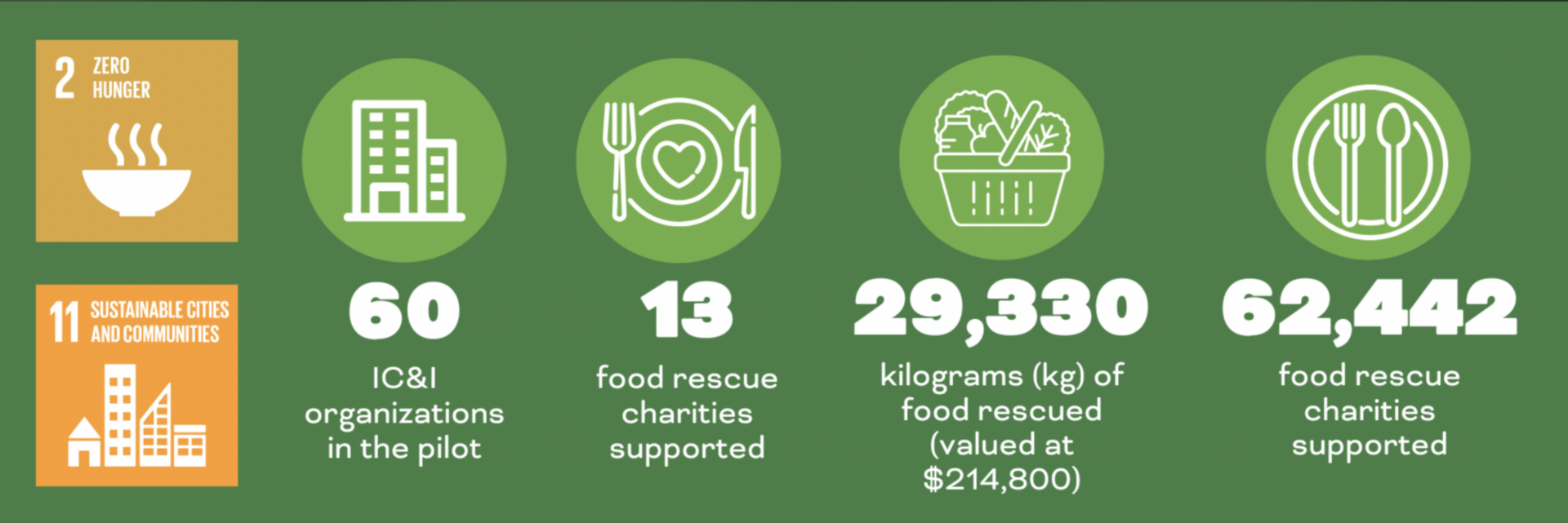
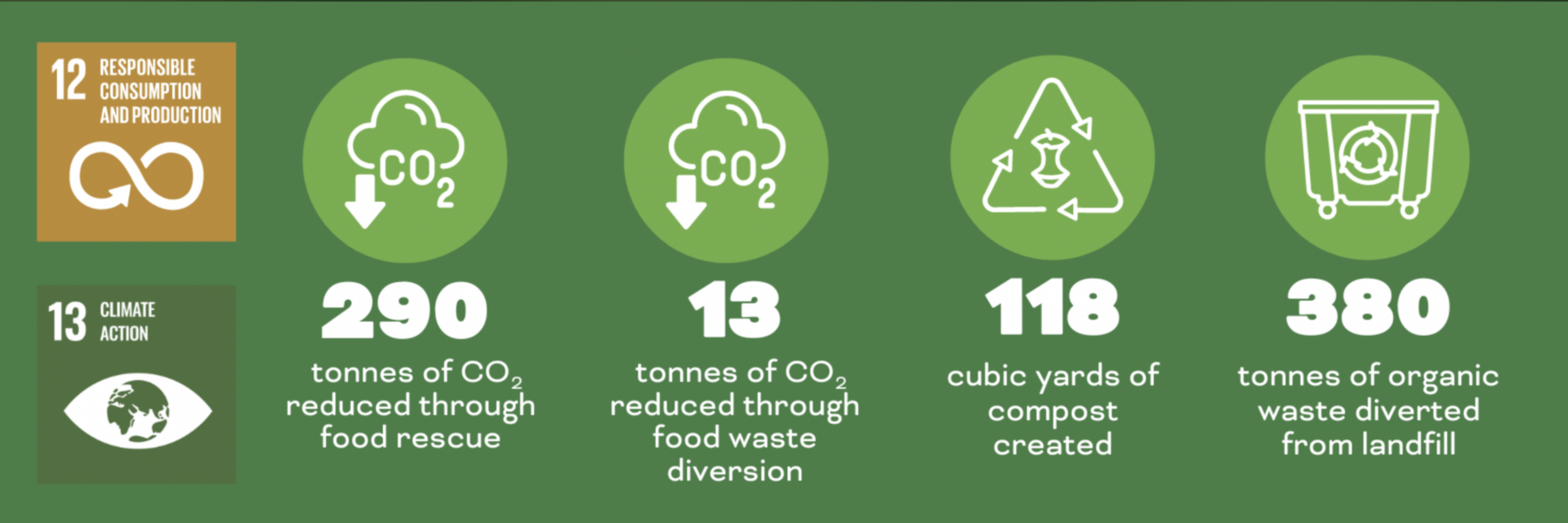
One thing that made the project’s alignment with the SDGs significantly smoother was that it was designed with data collection in mind—so it was easier to quantify impact. From the outset, graduate students from the University of Guelph worked in partnership with the CIC to track metrics like kilograms of edible food rescued, tonnes of organic waste collected and diverted, and tonnes of greenhouse gas emissions avoided.
“You can’t really develop solutions or policies without a starting point,” says Maggie Bain, Co-ordinator for the Commercial Food Waste Diversion Pilot. “Part of the purpose of this project was to better understand the barriers and challenges of reducing IC&I food waste. Specifically, we were looking to identify where gaps exist and what people need. Things like testimonials can provide context, but you need data to share your learnings and help other stakeholders use the information in a meaningful way.”
Looking ahead
Throughout the Guelph-Wellington pilot, many municipalities reached out to the CIC to see if the organization could help them launch similar programs—or if the CIC could share its learnings.
As a result, the CIC is currently working to launch a new pilot program in Strathcona County, Alberta—and students at the University of Guelph are studying opportunities to scale the pilot to other regions.
At the same time, the CIC is still working to expand its collective in Guelph-Wellington, with Phase 3 scheduled to wrap up in the summer of 2024. After that point, the CIC will issue a competitive RFP for a hauler and processor, and is hoping that the density offered by the collective will allow them to negotiate a competitive rate moving forward that mirrors their continued efforts to make food waste diversion affordable for businesses and institutions of all sizes.
Impact snapshot: Bella Roma Foods
As the proud owner and operator of Bella Roma Foods—a small Guelph, Ontario business committed to providing high-quality food products—program participant, Katherine Sowden, leverages her unique position and culinary background to educate others on the role of the food system, as well as our individual responsibilities within it.
That said, for a long time, it wasn’t always easy to practice what she preached.
Rescuing edible food to feed those in need, and composting unavoidable food waste, are integral components of a well-functioning food system—responsibilities Katherine found difficult, and expensive, to fulfill at a business level.
Finding an efficient way to get edible food from her business to food rescue charities involved a lot of moving parts that were often challenging—and time consuming—to manage. At the same time, like other Canadian communities, Guelph only offered door-to-door organics pickup for residents—not the industrial, commercial and institutional (IC&I) sector. This meant Katherine had to hire a private hauler to responsibly dispose of her business’s food waste.
“The quoting itself was a bit of a process,” Katherine says of her journey to find a private company to manage her organics. “It took three months to figure it out and often the quotes themselves weren’t easy to navigate.”
Even when she could make sense of the quotes, due to the low density of IC&I organics collection programs, private haulers tend to charge a lot for businesses that generate small amounts of waste—for a small, local businesses like Katherine’s this often isn’t affordable, and creates barriers to businesses who value sustainable environmental practices.
These barriers to composting in the IC&I sector are problematic—and exactly what the Collective is designed to solve.
“It was a no-brainer. Per bin, the cost to divert our waste [with the Collective] is about half when compared to private haulers quotes. The program has created a space for small businesses to access these collections for a price we can afford.”
